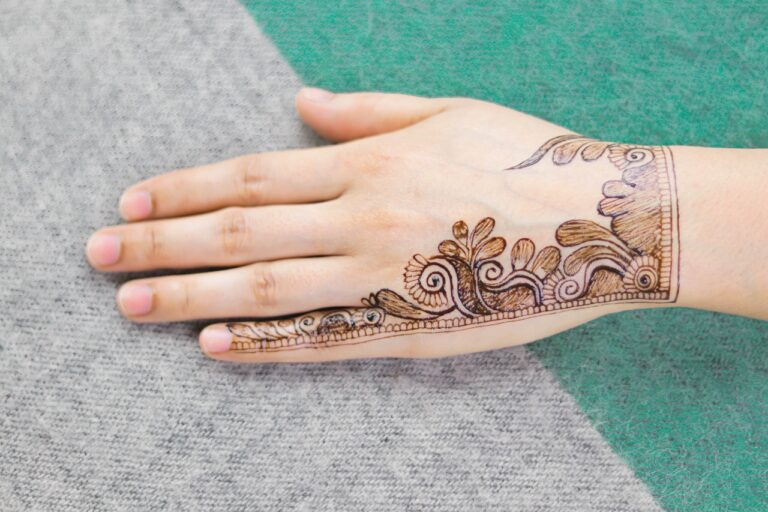Fashion Retail Trends: Personalization and Customization: Sky247 sign up, Diamondexch9.com login, Tigerexch vip
sky247 sign up, diamondexch9.com login, tigerexch vip: Fashion Retail Trends: Personalization and Customization
In the world of fashion retail, personalization and customization have become crucial trends that are reshaping the industry. With advancements in technology and changing consumer preferences, retailers are finding new ways to offer unique and tailored shopping experiences to their customers. From personalized recommendations to customizable products, these trends are driving innovation and setting new standards in the fashion retail landscape.
Personalization in fashion retail refers to the practice of using customer data and preferences to create tailored shopping experiences. This can include personalized product recommendations based on past purchases or browsing history, targeted marketing campaigns, and personalized communication through various channels. By understanding each customer’s unique preferences and behaviors, retailers can create a more engaging and personalized shopping experience that fosters customer loyalty and drives sales.
Customization, on the other hand, allows customers to create their own unique products by choosing from a variety of options such as colors, materials, and designs. This trend not only offers customers the opportunity to express their individuality but also provides retailers with valuable insights into customer preferences and trends. Customization can take many forms, from customizable clothing and accessories to personalized shopping experiences that cater to each customer’s specific needs.
Both personalization and customization are reshaping the fashion retail landscape in significant ways, driving innovation and setting new standards for customer experiences. In this article, we will explore the impact of these trends on the industry and how retailers can leverage them to stay ahead in an increasingly competitive market.
The Rise of Personalization in Fashion Retail
Personalization has become a key differentiator for fashion retailers looking to stand out in a crowded marketplace. By offering personalized shopping experiences, retailers can create a deeper connection with their customers and drive engagement and loyalty. From personalized product recommendations to targeted marketing campaigns, personalization is reshaping the way retailers interact with their customers and driving sales in the process.
One of the key benefits of personalization in fashion retail is the ability to create tailored shopping experiences that cater to each customer’s specific needs and preferences. By leveraging data and analytics, retailers can gain valuable insights into customer behaviors and preferences, allowing them to deliver personalized recommendations and offers that resonate with their target audience. This not only enhances the customer experience but also increases the likelihood of repeat purchases and brand loyalty.
Personalization can take many forms in the fashion retail industry, from personalized product recommendations on e-commerce websites to targeted email campaigns that speak directly to each customer’s interests and preferences. By leveraging data and analytics, retailers can create highly personalized experiences that drive engagement and ultimately, sales. In a competitive market where customer experience is key, personalization has become a powerful tool for retailers looking to set themselves apart from the competition.
The Impact of Customization on Fashion Retail
Customization is another trend that is reshaping the fashion retail landscape, allowing customers to create their own unique products and experiences. From customizable clothing and accessories to personalized shopping experiences, customization offers customers the opportunity to express their individuality and create products that reflect their personal style and preferences. This trend not only drives customer engagement but also provides retailers with valuable insights into customer preferences and trends.
One of the key benefits of customization in fashion retail is the ability to create products that are tailored to each customer’s specific needs and preferences. By offering customizable options such as colors, materials, and designs, retailers can empower customers to create products that are truly unique and reflective of their personal style. This not only enhances the customer experience but also allows retailers to better understand customer preferences and trends, enabling them to create more targeted and relevant products in the future.
Customization can take many forms in the fashion retail industry, from customizable clothing and accessories to personalized shopping experiences that cater to each customer’s specific needs. By offering customization options, retailers can create a more engaging and personalized shopping experience that drives customer loyalty and repeat purchases. In a competitive market where customer experience is key, customization has become a powerful tool for retailers looking to differentiate themselves from the competition and drive sales.
Leveraging Personalization and Customization in Fashion Retail
To stay ahead of the competition in the fast-paced world of fashion retail, it is essential for retailers to leverage personalization and customization to create unique and tailored shopping experiences for their customers. By combining the power of personalization with the creativity of customization, retailers can create compelling shopping experiences that drive engagement, loyalty, and sales.
One way retailers can leverage personalization and customization is by using data and analytics to gain insights into customer preferences and behaviors. By analyzing customer data, retailers can create personalized product recommendations, targeted marketing campaigns, and customized shopping experiences that cater to each customer’s specific needs. This not only enhances the customer experience but also drives engagement and loyalty, ultimately leading to increased sales and revenue.
Another way retailers can leverage personalization and customization is by offering customizable products that allow customers to create their own unique products. By offering customization options such as colors, materials, and designs, retailers can empower customers to create products that are truly one-of-a-kind and reflective of their personal style and preferences. This not only drives customer engagement but also provides retailers with valuable insights into customer preferences and trends, enabling them to create more targeted and relevant products in the future.
By combining the power of personalization with the creativity of customization, retailers can create compelling shopping experiences that drive customer engagement, loyalty, and sales. In a competitive market where customer experience is key, personalization and customization have become essential trends that are reshaping the fashion retail landscape and setting new standards for customer experiences.
FAQs
Q: How can retailers leverage personalization and customization to drive sales?
A: Retailers can leverage personalization and customization by using data and analytics to gain insights into customer preferences and behaviors, creating personalized product recommendations, targeted marketing campaigns, and offering customizable products that allow customers to create their own unique products.
Q: What are some examples of personalization in fashion retail?
A: Some examples of personalization in fashion retail include personalized product recommendations on e-commerce websites, targeted email campaigns that speak directly to each customer’s interests and preferences, and personalized shopping experiences that cater to each customer’s specific needs.
Q: How can customization benefit retailers in the fashion industry?
A: Customization can benefit retailers in the fashion industry by allowing customers to create products that are tailored to their specific needs and preferences, driving customer engagement, loyalty, and providing retailers with valuable insights into customer preferences and trends.
Q: What are some ways retailers can stay ahead of the competition in the fashion retail industry?
A: Retailers can stay ahead of the competition in the fashion retail industry by leveraging personalization and customization to create unique and tailored shopping experiences for their customers, using data and analytics to gain insights into customer preferences and behaviors, and offering compelling products and experiences that drive engagement and loyalty.







